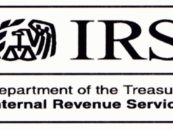NEW YORK — Banks and card networks like Visa and MasterCard are working with wireless carriers to cut down on fraudulent transactions by tying purchases to the location of a shopper’s smartphone.
According to North Jersey, in the next few months, AT&T Inc. will test a service that verifies transactions by using a phone’s whereabouts — as long as it has customers’ permission. The telecommunications provider is one of several companies, including smaller firms such as Syniverse Technologies and Ondot Systems, developing fraud-detection services based on a simple premise: People who are out shopping normally carry their phones with them.
“The market is huge,” said Laura Merling, a vice president at AT&T. “We are using data and information out of the network to create value.”
Global card fraud cost $12.4 billion last year, according to David Robertson, publisher of the Nilson Report, a payments-industry newsletter. A third of the calls received by banks come from customers who were denied a transaction — often needlessly — and handling each call costs $5 to $10, said Richard Crone, chief executive officer of Crone Consulting LLC, which advises companies on payment technology.
“This is tens of millions of dollars, if not hundreds of millions of dollars for the issuers,” Crone said. “That’s an immediate savings, on top of the fraud savings.”
AT&T’s Merling knows what it’s like to be a fraud victim. A few years ago, her card was used to buy $25,000 in party supplies in New York, while she was more than 2,000 miles away on a trip in Seattle.
In the service Merling is now working on, AT&T would use its network data to find a participating customer’s phone, detecting a change in location. For example, the company would be able to confirm that a customer has flown from New York to Paris as soon as she turns on her phone upon landing. AT&T would convey this information to her credit-card lender so that if a transaction is attempted at a store in New York, it would be declined.
While fewer than 3 percent of all credit and debit cards are currently tied to a phone location, 50 percent of consumers’ cards may have the technology in three to five years, Avivah Litan, an analyst at Gartner Inc., said in an interview.
“If 100 percent of users had this service, it could probably eliminate half the fraud,” said Crone, the consultant.
In addition to preventing fraud, a phone-location system could also help get rid of false positives — transactions that are denied because the customer wasn’t in her customary location and forgot to report her travel plans to the bank. Four out of five declined transactions didn’t actually need to be denied, said Hany Fam, who oversees strategic partnerships at MasterCard, in an interview.
Location-based services could open up a big revenue opportunity for wireless carriers, who could charge an average of 10 cents per card transaction, Litan said. The bet is that banks would gladly pay the extra fee to reduce fraud because they could cut expenses by reducing the number of customer-service calls. Like all expenses, fraud costs are eventually passed by banks to consumers in some form, such as fees.
The new services can tie credit or debit cards to a mobile location in one of several ways. A consumer may authorize the companies to track her phone’s location. A bank or card network can team up with Dallas-based AT&T or an intermediary such as Tampa, Fla.-based Syniverse.
Others, like Ondot and Malauzai Software Inc., let banks offer various card controls to users via mobile-banking applications. With Ondot, consumers can use a smartphone app to turn their cards on and off, and specify for them to stop working if taken outside of a certain area.
Banks can set similar policies so users don’t even have to download an app to be protected from fraud. Lone Star National Bank has been testing software from San Jose, Calif.-based Ondot for a year and has cut fraud costs by 60 percent by using the software to create rules for confirming transactions.
“These rules are in effect 24-7,” the bank’s chief information officer, Kevin Pilgrim, said in an interview. “So if our fraud department sees a pattern, it automatically warns us and protects the client.”
The services companies are testing don’t affect online transactions because a customer’s location can’t be tied to them. The tracking technology only works if consumers sign up for it and keep their phones on — a potential hurdle since many travelers turn off their devices abroad to avoid roaming charges.
Wireless companies, card networks and banks are also working on mobile-phone payment technology that would eliminate the need for plastic cards altogether. That would mean that the same device could be used to make a purchase and authenticate its location.
AT&T will be testing its new location-verifying service with U.S. customers who travel to 150 countries, and it’s trying to get other carriers to provide similar offerings, Merling said. Eventually, the carrier hopes to bring the service to all mobile-phone-bearing shoppers who use plastic, she said.
In February, Syniverse and Purchase, N.Y.-based MasterCard said they are also trying out a service for international travelers, who would have to confirm their willingness to be tracked by opting in. MasterCard will act as the middleman between mobile carriers and banks, linking a consumer’s card and phone information with a digital ID. The company would authorize a transaction when the wireless carrier verifies the phone is in the same place.
As the go-between, MasterCard will collect fees from card issuers and, via Syniverse, pay some of that money to wireless carriers. That will be less complex for banks than trying to establish their own relationships with mobile-phone providers around the world, MasterCard’s Fam said.
“The carrier-by-carrier opt-in thing is just a nightmare. Who’s going to have a thousand contracts with carriers around the world?” Fam said. “It’s never been done in a way where you can opt in to a service and be confident it’s going to be available extensively.”
Visa, operator of the world’s largest bank-card network, is planning to use phones’ locations to help prevent fraud as well, Sam Shrauger, global head of digital solutions for the Foster City, Calif.-based company, said in a telephone interview.
“Like many things, it will be something that becomes embedded in a lot of what we do,” Shrauger said. “Like many of these technologies, people will not so much talk about them but just embrace them and let them be a part of the experience in their lives.”
Now, we want to hear from you! Would like to share your opinion or make a comment on the Unlock Your Wealth Radio Show? If so, then please leave your comment or questions in the space provided below and share this article with your friends and family on Facebook and Twitter. Your comments or question could be chosen as our featured Money Question Monday and a phone call by financial expert Heather Wagenhals could dial your way to be live on the Unlock Your Wealth Radio Show.
Source: North Jersey





